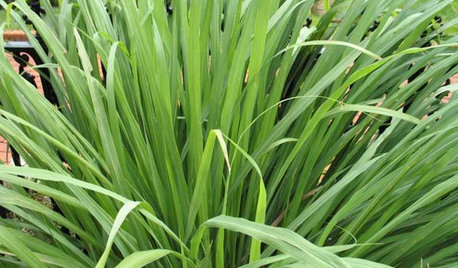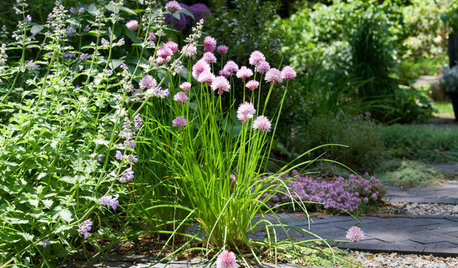Herbs for Ancient Mariners
gulliblevolunteer
19 years ago
Related Stories

ECLECTIC HOMESHouzz Tour: Ancient and New Tell a Story in San Francisco
Chinese artifacts join 1970s art and much more in a highly personal, lovingly reincarnated 1896 home
Full Story
HERBSHerb Garden Essentials: Grow Your Own Zesty Lemongrass
Add lemony goodness to cooking and tropical flavor to your yard with this grass-like herb native to Southeast Asia
Full Story
EDIBLE GARDENSHerb Garden Essentials: Grow Your Own Tasty, Frilly Dill
Flavor your food and attract butterflies with easy-care (and pretty) dill in the garden
Full Story
EDIBLE GARDENS8 Surefire Vegetables and Herbs for Beginning Gardeners
Learn the edible plants that are popular and easy to grow in a backyard or container garden
Full Story
GOLD FOLIAGEGreat Design Plant: Ginkgo Biloba
This ancient tree provides shade, tolerates urban planting conditions and explodes with golden yellow fall color
Full Story
STORAGEGlobal Icons: The Apothecary Chest
With an ancient provenance and modern usefulness, apothecary chests let you divide and conquer storage and style
Full Story
DECORATING GUIDESGeology 101: Malachite Madness
This semiprecious stone has been turning heads since ancient times. See how to incorporate its emerald green swirls into your decor
Full Story
WORLD OF DESIGNThe Romance of Living on Germany’s Medieval Merchants’ Bridge
The Krämerbrücke is lined with ancient houses still occupied by local artisans. Take a tour of the bridge and one of its historic homes
Full Story
LANDSCAPE DESIGNRecipe for Modernist Edible Garden Style
Herbs, vegetables and fruit trees aren’t just for traditional gardens. Here’s how to design them into modernist landscapes
Full Story
DECORATING GUIDESSee How Wabi-Sabi Can Bring Harmony and Beauty to Your Home
Create your own wabi-style style with beautifully weathered, humble materials around the house
Full StoryMore Discussions






Herbalynn
Daisyduckworth
Daisyduckworth
herbalbetty
lazy_gardens
gulliblevolunteerOriginal Author
lazy_gardens
ellanadasdy
ellanadasdy
herbman
eibren
simplemary